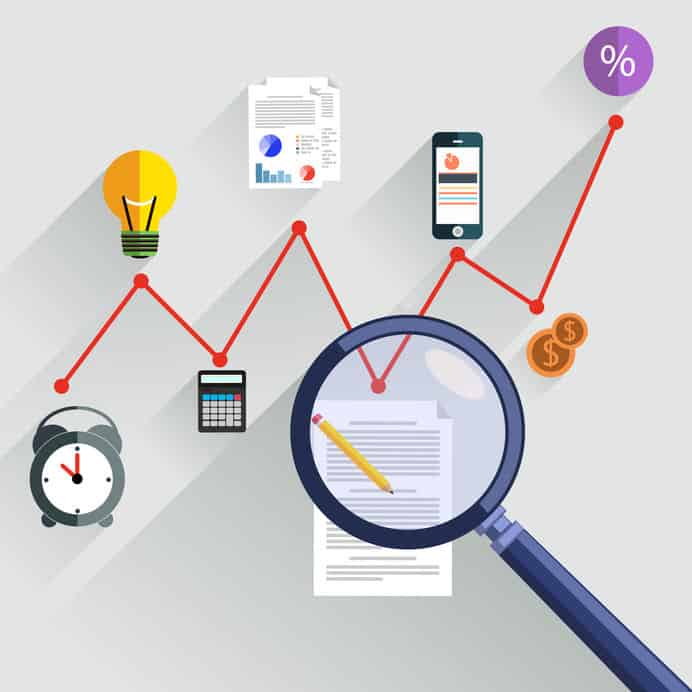I started in IT in 1991 and have been through a number of roles and jobs since then, only finding my calling and emerging as a business analyst in recent years.
I’ve recently been looking back and trying to see how the role has evolved in that period and reflecting on the trends in business analysis.
Table of Contents
Think Enterprise, Act Local
The first trend is the shift of focus from a local, short term, problem-specific approach to take in a progressively broader, longer term view until you take in the entire enterprise (aka enterprise architecture
The local, short term focus is very much still in evidence but there are certain questions which are recognised more as valid and important.
- How does this support the business strategy?
- What are the business benefits?
- The solution should do X but have you decided on the end to end business process that shows where the solution fits?
Of course, in our rush to deliver, we may not be given the time to answer these questions but at least people recognise they are important and valid questions.
Focus On Business Not IT
The most important trend for me is the move from business analysis being an activity that defines and delivers IT systems to defining and delivering a business solution and considers the wider holistic perspective, People, Organisation, Process, Information, Technology (POPIT)
The focus should be on the business and its needs – an IT system may or may not result but it is irrelevant as long as the ‘solution’ is the right one for the business. The IT tail should not be wagging the business dog.
Recognition Of Business Analysis As A Profession
Another trend is the recognition of business analysis as a professional skill. The business world are starting to recognise that an ability to model, understand and analyse the business is a very important skill, especially as the world and businesses change at an ever increasing rate.
The low hanging fruit that deliver a quick, cost saving IT solution have almost disappeared. If we are to improve our businesses, we need to understand them better and ensure the changes we make are the right ones now and for the longer term.
The emergence of professional qualifications and professional organisations recognises the need to quantify and formalise these skills so that we can understand the range of skills, the level of ability of an individual or organisation and the path to improving that skill.
Business Analysis organisational bodies such as the IIBA
- Agile Analysis Certification (AAC)
.
- Business Data Analytics Certification (CBDA)
.
- Cybersecurity Analysis Certification (CCA)
.
- Product Ownership Analysis Certification (CPOA)
.
This is in addition to their core business analysis certifications.
- Entry Certificate in Business Analysis (ECBA)
.
- Certification of Capabilities in Business Analysis (CCBA)
.
- Certified Business Analysis Professional (CBAP)
.
Business analysis is actually very broad and it is unlikely that any one individual is familiar and experienced in the entire range of skills.
Emergence Of Specialist Business Analysts
Business analysts tended to have come from either a business background or an IT background. Those with a business background tended to be capable in their particular area of business expertise but weaker in the modelling and, in particular, IT-specific modelling skills. The reverse would be true of a business analyst with an IT background.
There are many flavours of business analysts today which include the following:
Journeyman Business Analyst
Broad experience of many different industry sectors with good experience of a range of business analysis techniques. Tends to be freelance or generalist consultant where this sort of experience arises. Will engage on new jobs and will expect to learn the business area quickly and will be proactive in achieving a productive level of competence quickly.
Business Analyst Domain Expert
Same sector, same company with lots of company-specific business knowledge. Expertise on business analysis techniques will depend on their motivation, exposure to outside influences and company professional development policies.
Industry Sector Specialist Business Analyst
Focussed on an industry sector. Similar to a journeyman business analyst but with focus on a particular industry sector. Will shape professional development to improve knowledge of industry sector over general business analysis skills. This sort of individual may advise on company strategy or drive project requirements borne out of their specialist knowledge.
Specialist Business Analyst
Focussed around a particular specialism within business analysis. This could be based on a specialism within the business (e.g. business architect, related closely to strategy) or a particular methodology (e.g. agile or Rational Unified Process RUP).
Increased Focus on Data Analytics
Another trend we are seeing in business analysis is an increased focus on data analytics. Businesses are collecting more data than ever before, and they need someone to help them make sense of it all. As a business analyst, you will be responsible for analysing this data and providing insights that can help improve the bottom line.
Agile Ways of Working
Another trend we are seeing is a move towards agile methodology. This means that business analysts must be able to work in short, iterative cycles in order to deliver results quickly. This trend is being driven by the need for businesses to be more agile and adaptable in today’s ever-changing market.
Product Thinking and Product Management
More and more organisations are shifting their focus on product teams and long lived teams. Some organisations are encouraging or educating their business analysts to work an agile product centric way and coaching business analyst to become product owners or product managers.
As time has moved on the same organisations have realised that business analysts are required to work with product teams and product owners and product managers
Increase in Customer Experience and Being Customer Centric
We are also seeing a shift towards user experience (UX) design and customer experience. As businesses increasingly focus on the customer experience, they need business analysts who can help them design and improve their digital products and services.
Assisting and Supporting Organisations with Enabling Business Agility
A business analyst may find themselves involved in helping to enable the business agility in an organisation’s culture, leadership, strategy, and governance that benefits all stakeholders who operate in uncertain, complex, and ambiguous situations.
Considering Service Design
To help improve the customer experience and the product and services provided to customers. More companies are using elements of service design.
Most companies are structured around products and delivery channels. Many of the organisations’ resources (time, money, logistics) are spent on customer-facing activities, while internal processes are neglected; service design focuses on these internal procedures and helps to provide an improved level of service to customers.
Conducting journey mapping or service blueprints all helps to understand and document a future state of services that work more effectively for the customer.
Remote Working
The COVID pandemic has forced companies to consider their ways of working and how can be done. Many business analysis during the pandemic found themselves working from home remotely.
Now that the pandemic has eased off – many business analysts have not fully returned to the office and find themselves in hybrid working arrangements working from both the office and home.
Remote working has meant using different facilitation tools and techniques. The usefulness of using MS Teams and recording conference calls and meetings has been a pleasant benefit to note-taking.
Becoming a Trusted Advisor
Business analysts in senior positions and experience can make the most of their vast array of tools and techniques and become a trusted adviser to their organisations.
The profession of business analysis is constantly evolving and so are businesses. Having someone with a breadth and depth of knowledge is vital and helpful for most organisations to help them stay competitive.
Increase in Robotics
A business analyst needs to learn new skills in robotics and automation. This is to make sure that the company they are working for is not only efficient, but future-proof as well.
Robotics and automation are two important trends. Robotics refers to the use of robots to automate tasks that are typically done by human beings. Automation, on the other hand, refers to the use of technology to automate tasks that can be done by either humans or robots.
These trends are being driven by the need for businesses to be more efficient and productive. Robotics and automation can help businesses achieve these goals by reducing the amount of time and resources that are needed to complete tasks.

